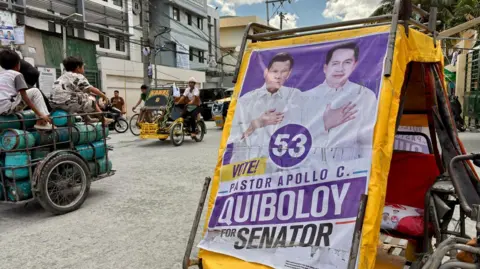Philippines Election 2025: Power Shifts, Dynasties, and the Future of Filipino Politics

The Philippines has once again taken the spotlight in Southeast Asian politics as the nation’s 2025 election produced dramatic twists involving key figures and powerful dynasties. From legal battles abroad to shifting alliances at home, recent results are reshaping the political landscape. This article breaks down the key outcomes, analyzes the current state of Philippine politics, and looks ahead to what might come next for Filipinos.
The Philippines’ Political Battlefield: Dynasties Clash and Power Shifts
The 2025 mid-term elections in the Philippines saw an intense rivalry between the entrenched Duterte and Marcos families. The results, as reported by BBC News, signaled a potential shake-up for President Ferdinand “Bongbong” Marcos Jr.’s dominance in the senate. Fewer than expected senators allied with his administration secured seats. Meanwhile, former President Rodrigo Duterte, despite being detained in The Hague over drug war allegations, claimed a resounding mayoral victory in his home turf, Davao City. The election was more than just a contest for government roles—it was widely seen as a referendum on the two families’ vision for the nation.
Duterte’s Return to Local Leadership: Legal Hurdles and Family Ties
Rodrigo Duterte’s sweeping win—as described in a detailed CNN analysis—poses unusual legal questions. Having long been a divisive yet influential figure in the Philippines, Duterte’s re-election as mayor comes while he is detained thousands of miles away. Ongoing proceedings at the International Criminal Court complicate whether he can formally assume office or fulfill duties remotely. If unable to return, responsibilities could fall to his son, Sebastian Duterte, the newly elected vice mayor. This highlights not only the strength but also the complexity of political dynasties in the country.
Senate Results and the Rise of New Faces
The senate race proved just as eventful. Although the Marcos camp initially expected to sweep the available seats, actual results revealed a more fragmented senate. Notably, political figures from outside the dominant families, such as Bam Aquino and Francis Pangilinan, secured significant positions, marking a return to prominence for other historic names in Filipino politics. According to Al Jazeera's report, these outcomes reflect both the resilience of established dynasties and the possibility of shifting allegiances.
What’s Next for the Philippines?
With major positions still influenced by powerful families, the 2025 Philippine election shows that voter loyalty remains deeply rooted in history, reputation, and regional identity. Yet, new voices are emerging, and the balance of power is less predictable than before. As legal battles unfold and impeachment threats persist—including those against Vice President Sara Duterte—the political climate remains tense. How these developments impact ordinary Filipinos, as well as broader issues like governance, human rights, and economic growth, is yet to be seen.
Conclusion
The recent elections have again proven how dynamic and complex politics can be in the Philippines. Key victories and ongoing legal struggles will shape leadership at both national and local levels. For Filipinos, the future promises further twists as old rivalries, new alliances, and the will of the people continue to redefine the nation’s path.
Curious about more in-depth coverage? Discover further insights from CNN’s feature on Duterte’s legal dilemma, and examine Al Jazeera's analysis of election winners and losers for a broader perspective.